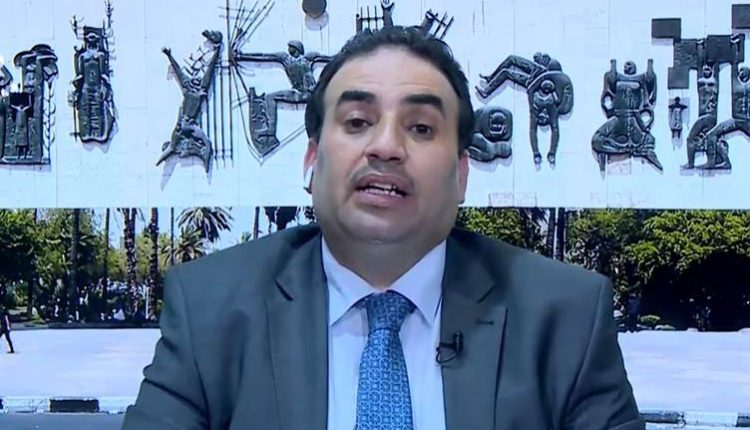Iraq Responds to HTS al-Jolani’s Message Amid Escalating Syrian Conflict
BAGHDAD, Iraq (North Press) – Iraq has responded to a video message from Abu Muhammad al-Jolani, leader of Hay’at Tahrir al-Sham (HTS), formerly known as Jabhat al-Nusra, urging Baghdad to stay neutral and refrain from involvement in Syria’s ongoing conflict.
On Thursday, Iraqi Prime Minister’s Advisor, Hussein Alawi, stated that Iraq is closely monitoring the developments in Syria and emphasized Baghdad’s commitment to the country’s territorial integrity.
“We are observing the situation in Syria closely and will not stand idle,” Alawi said in a statement to Al-Arabiya/Al-Hadath.
The remarks were made hours after al-Jolani’s video appeal, which called on Iraqi Prime Minister Mohammed Shia’ Al-Sudani to prevent Iraqi Popular Mobilization Forces (PMF) from intervening in Syria. Al-Jolani assured that the ongoing conflict in northern Syria would not extend into Iraqi territory.
Al-Jolani’s Appeal to Iraq
In his earlier video message, al-Jolani addressed Iraq’s alleged involvement in the conflict, specifically focusing on reports of PMF deployment to support Syrian government forces. He stressed the importance of Iraqi neutrality, claiming that external interference could exacerbate the already dire situation.
This comes amid a dramatic escalation in Syria, where HTS and Turkish-backed factions have seized significant territories, including Hama and Aleppo, following intense battles with Syrian government forces.
Al-Jolani claimed that his forces’ recent victories were aimed at liberating Syria and cautioned Iraq against becoming entangled in the conflict.
Baghdad’s Position
Alawi’s response reflects Baghdad’s cautious stance. While asserting Iraq’s commitment to Syrian unity, he avoided directly confirming or denying the presence of PMF fighters in Syria.
The Iraqi government has historically been wary of HTS, given its connections to extremist organizations and its potential to destabilize regional security. However, the possibility of PMF involvement in Syria underscores the interconnected nature of conflicts in the Middle East, where state and non-state actors often cross borders.
Regional and International Context
HTS’s appeal to Iraq highlights the broader regional stakes of the Syrian conflict. The group’s rapid territorial gains in northern and central Syria have shifted the balance of power, raising alarms in neighboring countries, including Iraq.
Reports of PMF deployment in Syria remain unconfirmed but have drawn significant attention. The PMF, a coalition of predominantly Shia militias, has been a critical force in Iraq’s fight against ISIS and maintains close ties to Iran. Its potential involvement in Syria could signal deeper regional entanglements, complicating an already volatile situation.
Escalation in Syria
Over the past week, HTS and allied factions have launched a sweeping offensive against Syrian government forces. The capture of Hama and Aleppo marks a significant turning point in the conflict, putting pressure on Damascus and its allies, including Russia and Iran.
The Syrian Ministry of Defense announced a strategic withdrawal from Hama earlier this week, citing the need to protect civilians and reposition its forces. Meanwhile, opposition factions have continued their advance, raising fears of further instability.
The Humanitarian Fallout
The intensified fighting has led to a surge in displacement, with thousands of civilians fleeing active conflict zones. Humanitarian organizations have warned of a deepening crisis, as resources in the region are stretched thin.
Looking Ahead
As HTS consolidates control over major urban centers, its leader’s outreach to Iraq reflects an attempt to manage the broader regional response. However, Baghdad’s cautious yet firm reply signals that Iraq remains deeply invested in maintaining its security and sovereignty amid a rapidly evolving regional landscape.
The international community, including the United Nations, continues to call for dialogue and de-escalation to prevent further suffering and instability.

